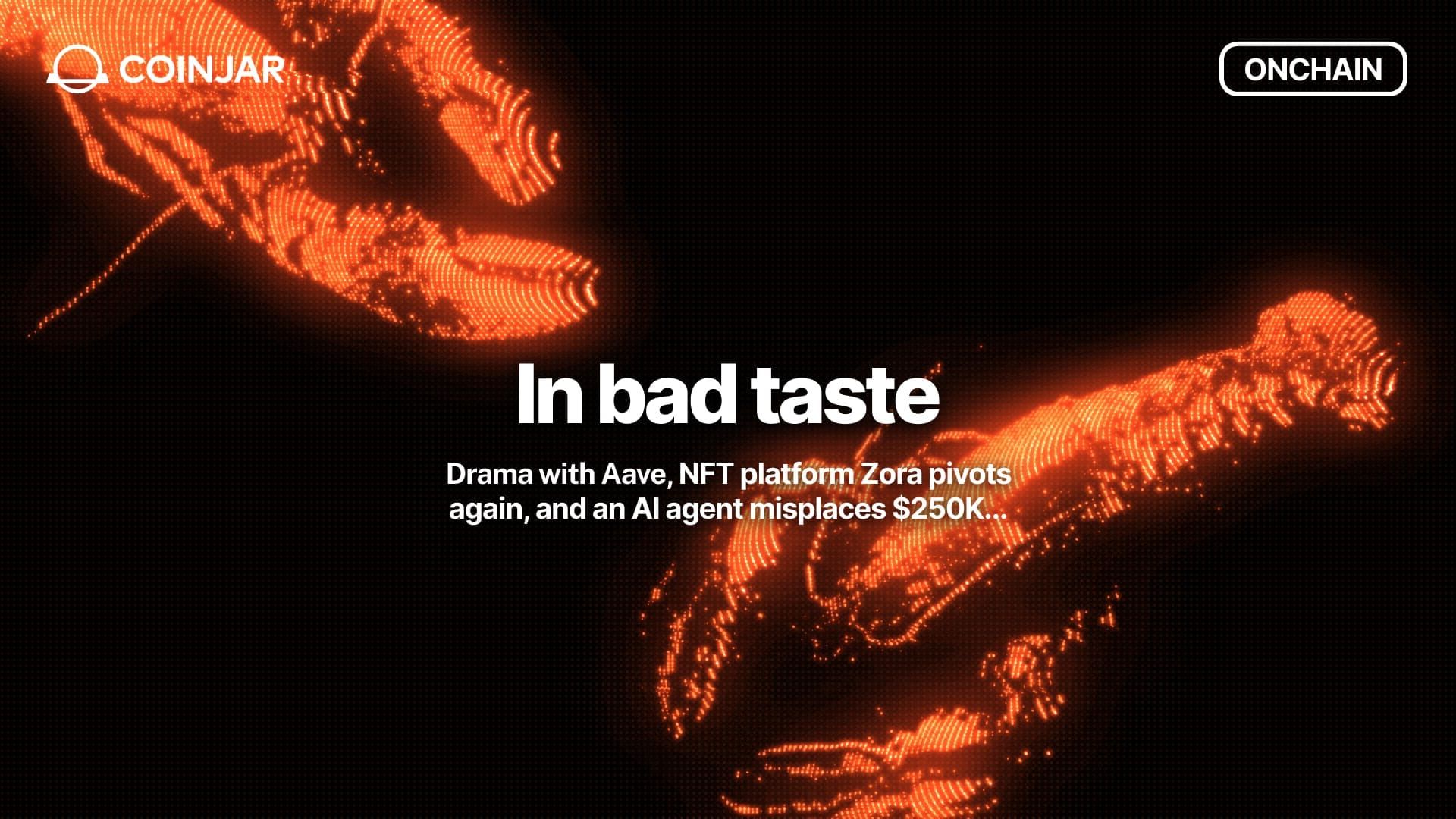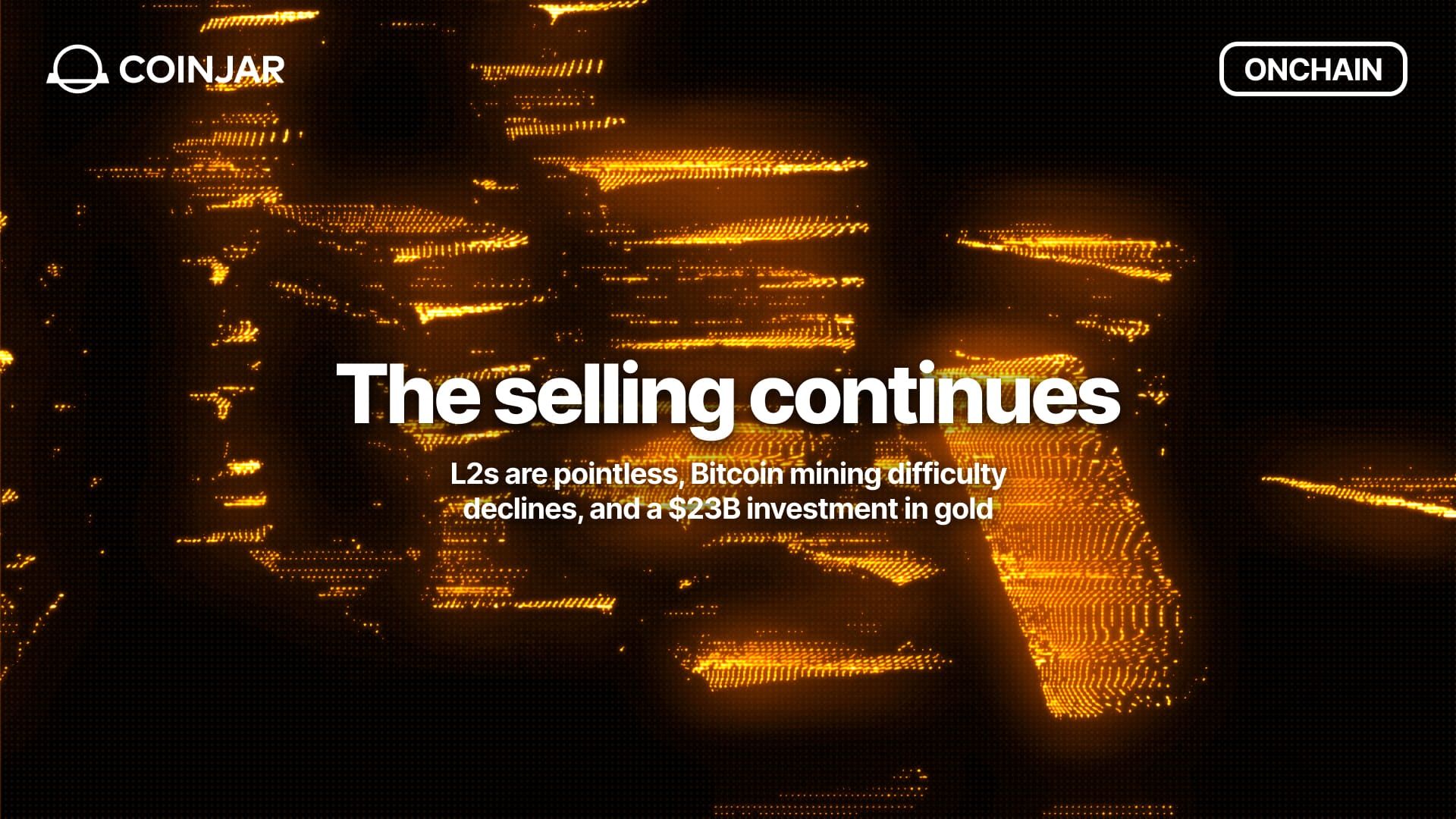Offchain: Trading your magic Internet money: Brokers & Exchanges
May 18, 2023
Share this:

Learn about the key differences in these trading venues and which one might suit your needs.
Chances are that you didn't get into crypto because someone magically appeared in front of you and sold you Bitcoin - even though the magic internet money meme would suggest so.

Instead you probably bought your first crypto on an exchange. Or maybe it was a broker? Let's explore what both are since it's good to know what you're dealing with - in crypto, as in life.
What's a crypto broker?
Just three letters separate crypto bro from crypto broker. Yet, one is useful, while the other primarily posts memes on Twitter or shills their bags.

Crypto brokers are similar to traditional brokers. They mediate between traders and the market. When you trade through a broker, the broker connects to one or more crypto exchanges. As an intermediary between parties, brokers rely heavily on customers depositing cryptocurrencies with 3rd party exchanges.
That means trading on a broker is roughly as direct as when a Japanese person says they'll think about it after you invite them. For those unfamiliar with Japanese people, it means "no".
A result of this structure is that brokers hold most of their cryptocurrencies on other exchanges, which they don't always disclose. When FTX went bankrupt, the broker Digital Surge lost $33 million of its client's funds because they were stored on FTX. While it seems they will survive the fallout, traders still have their funds locked with uncertainty about when they'll regain access.
What about exchanges?
It's in the name; you go to an exchange to exchange your crypto. Unlike trading on a broker, cryptocurrencies on exchanges are directly integrated into their platform. That means a big headache for poor developers whenever a new native blockchain needs to be integrated. The upside is that the exchange controls its hot and cold wallets without needing to rely on a third party cryptocurrency exchange.
Instead of trading with one big counterparty, exchanges bring together everyone wanting to trade crypto and match them using their matching engine. While that might sound like you'll have to wait to fill your orders, it depends on the order type you use. Normally, exchanges will ensure that buying and selling at market price is smooth, thanks to agreements with market makers. And since it's the market defining the price on exchanges, traders can better capitalize on opportunities compared to when using brokers.
Centralised exchanges also tend to have lower fees than brokers, but brokers can provide a wider range of cryptocurrencies for trading.
So which one should I use?
Like everyone in crypto, none of us is giving financial advice.
Which type of platform you want to use is ultimately down to preference and what you're trying to accomplish.
You should be aware of the risks with brokers since they will draw all their liquidity from external sources that they don't control nor disclose. These sources can be based outside of Australian laws and regulations. Therefore, doing your due diligence on a broker can be challenging.
Exchanges, in contrast, tend to be in full control of your crypto in jurisdictions that they are registered to operate in.
Whichever you choose, not putting your funds in one basket is a good start to hedging your risks.
Enjoy the ride, and remember the only trading strategy you need: buy low, sell high.
- Naomi from CoinJar
Warning: Past performance is not a reliable guide to future performance. If you invest in this product, you may lose some, or all, of the money you invest. The above information is not to be read as investment, legal or tax advice and takes no account of particular personal or market circumstances; all readers should seek independent investment, legal and tax advice before investing in cryptocurrencies. There are no government or central bank guarantees in the event something goes wrong with your investment. This information is provided for general information and/or educational purposes only. No responsibility or liability is accepted for any errors of fact or omission expressed therein. CoinJar Europe Limited makes no representation or warranty of any kind, express or implied, regarding the accuracy, validity, reliability, availability, or completeness of any such information. CoinJar Europe Limited is authorised by the Central Bank of Ireland as a crypto-asset service provider (registration number C496731).
Share this:
On/Offchain
Your weekly dose of crypto news & opinion.
Join more than 150,000 subscribers to CoinJar's crypto newsletter.
Your information is handled in accordance with CoinJar’s Privacy Policy.
More from CoinJar Blog

Onchain: In bad taste
February 25, 2026ICYMI, the tech bros have once again discovered taste, so get ready to be lectured by dudes who think it's acceptable to live with one ceiling light on what to wear and consume....Read more
Onchain: The selling continues
February 11, 2026Until morale improves, or so I hope. Story One L2s are pointless Tweets the guy who advocated for them as part of the Ethereum scaling roadmap. Perhaps to deflect from his...Read more
Onchain: Lots of things on sale
January 28, 2026Story One Crypto Social for Sale Been an interesting time to observe what happens to the still-standing crypto social networks. Aave, a leading DeFi protocol and creator of...Read moreYour information is handled in accordance with CoinJar’s Privacy Policy.
Warning: Past performance is not a reliable guide to future performance. If you invest in this product, you may lose some, or all, of the money you invest. The above information is not to be read as investment, legal or tax advice and takes no account of particular personal or market circumstances; all readers should seek independent investment, legal and tax advice before investing in cryptocurrencies. There are no government or central bank guarantees in the event something goes wrong with your investment. This information is provided for general information and/or educational purposes only. No responsibility or liability is accepted for any errors of fact or omission expressed therein. CoinJar Europe Limited makes no representation or warranty of any kind, express or implied, regarding the accuracy, validity, reliability, availability, or completeness of any such information.
CoinJar Europe Limited is authorised by the Central Bank of Ireland as a crypto-asset service provider (registration number C496731).
For more information on our regulatory status and the crypto-asset services we are authorised to provide, please see our official announcement and our MiCAR Legal & Regulatory Information page.
Apple Pay and Apple Watch are trademarks of Apple Inc. Google Pay is a trademark of Google LLC.
This site is protected by reCAPTCHA and the Google Privacy Policy and Terms of Service apply.